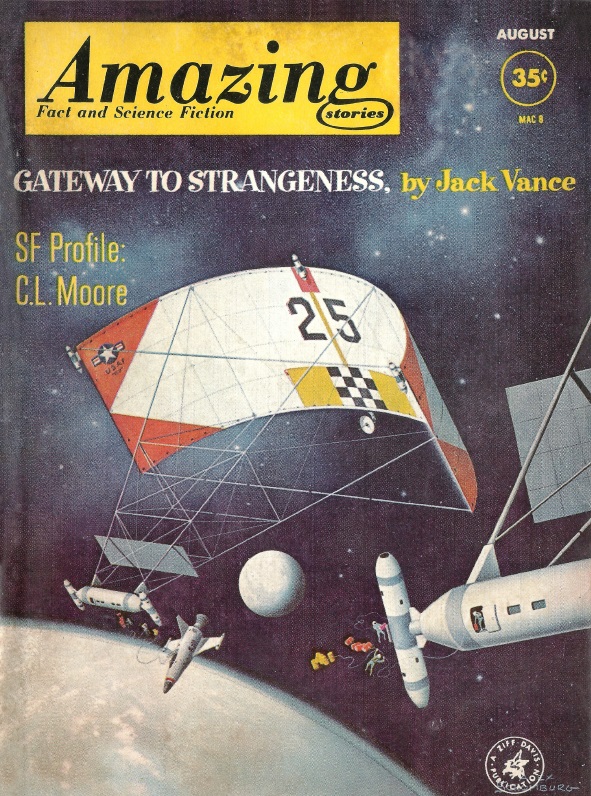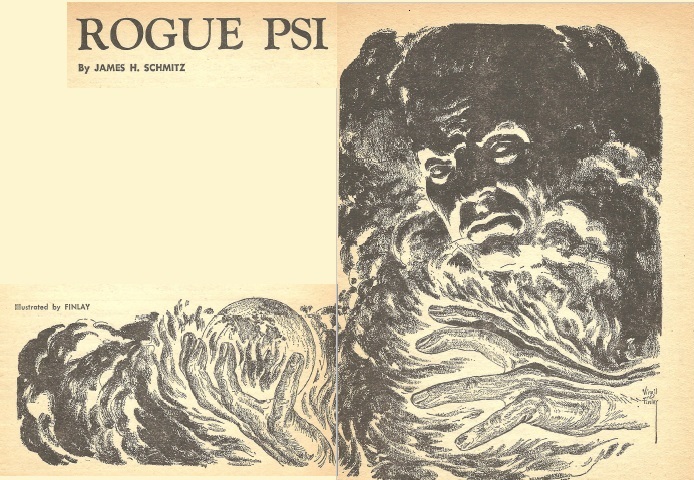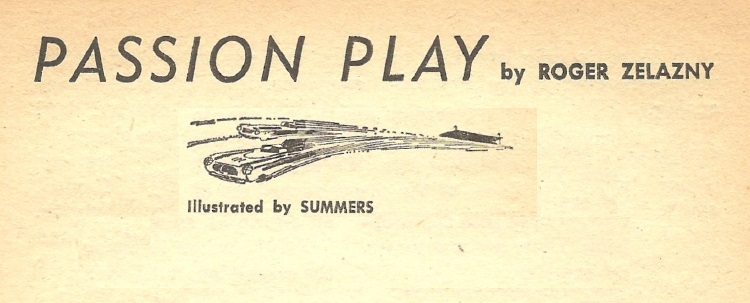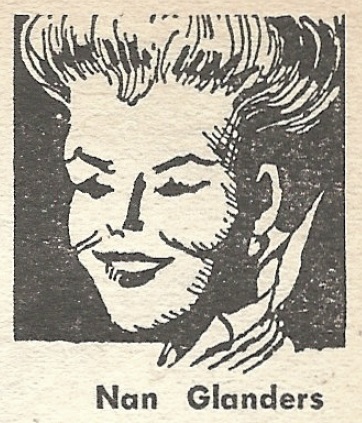
by John Boston
Summertime, and the living is . . . hot and sticky, here in the near-South. Also fairly boring, if one is not much interested in such local rustic amusements as hayrides and frog-gigging (if you have to ask, you don’t want to know.) There’s no better time to find a comfortable hiding place and read science fiction magazines, except possibly for all the other times. Of course the season—any season—doesn’t guarantee merit, and the August 1962 Amazing is the usual mixed bag.

The issue leads off with the cover story Gateway to Strangeness by Jack Vance, which contrary to its title goes out of its way to avoid strangeness. It’s the one about the martinet skipper who treats his young trainee sailors with brutal sternness—not to mention sabotage to create life-threatening problems for them to solve—but it’s good for them and makes men out of them, except for the one who’s dead. In this case it’s a solar sail ship and not a windjammer, but the premise is just as tired regardless of medium. The most interesting aspect is the description of operating a spaceship propelled by the “wind” of light and particles emanating from the Sun. For a Vance story, that’s a judgment of failure: his talents lie elsewhere than hardware (see The Moon Moth in last year’s Galaxy and The Miracle Workers a few years ago in Astounding), but he seems determined sometimes to play to his weaknesses. Two stars.

The other novelet here is James H. Schmitz’s Rogue Psi, in which humanity (via the members of a secret psi research project) confronts a “hypnotizing telepath” who can control or impersonate anyone, and has been interfering with humanity, and in particular its efforts to get off-planet, for centuries. The showdown is brought about via “diex energy,” which amplifies psi powers. This is all moonshine, but Schmitz is an engaging writer and has a knack for physical and experiential description that make his account of psychic goings-on better grounded than others we could name—none of the familiar “he stiffened his mind shield as Zork lashed out” sort of thing. The deus ex machina, or ex hat, resolution even goes down smoothly. Three stars for capable, even lively, deployment of material that otherwise would border on cliche.

In between is the short story Passion Play by Roger Zelazny—who? New writer, I guess, and the story is a heavily satirical vignette of a sort common from new writers—that is, it’s only barely a story. In the future, it appears, robots have inherited the Earth, and one of them tells his story (in the present tense, no less), which involves ceremonially reenacting a crash from a famous auto race of the past (this one at Le Mans). The guy is a glib writer, though—“After the season of Lamentations come the sacred stations of the Passion, then the bright Festival of Resurrection, with its tinkle and clatter, its exhaust fumes, scorched rubber, clouds of dust, and its great promise of happiness”—so we may hear from him again, more substantially. Two stars, basted with promise.

One hopes not to hear further from Beta McGavin, the probably pseudonymous author of Dear Nan Glanders, an advice column from the future, a silly space-filler of which the best that can be said is that it distracts from Benedict Breadfruit, whose exploits continue here as well. One star.

That’s it for the fiction contents, except for the second installment of Keith Laumer’s A Trace of Memory, to be discussed when it is completed next month. As for non-fiction, Sam Moskowitz contributes C.L. Moore: Catherine the Great, another in his “SF Profiles” series, with considerable interesting biographical detail and more attention than usual for Moskowitz to her more recent work (possibly because there is so little of it). Four stars.
But overall, this magazine is getting a little exasperating. The year began well with several excellent stories by J.G. Ballard, Brian Aldiss, and Mark Clifton, but the streak did not continue. For some months now the magazine’s high points have mostly been competent product like this month’s Schmitz story, nice tries like Purdom’s The Warriors, and trifles with promise like Zelazny’s story in this issue. Enough promise; time for some more delivery.
